vISUAL nARRATIVES
The art of storytelling through visuals
Objectives
1. Analyse how visual narratives are used across a range of media to tell stories.
3.
2. Present a visual narrative to an identified audience.
Explore the codes and conventions relevant to visual narratives.
4. Evaluate the effectiveness of storytelling in a visual narrative.
Storytelling using visual media is called visual narratives. The story may be told using still photography, illustration, video, and can be enhanced using sound effects and vfx.
TYPES:
1. Static
2. Dynamic
3. Interactive
FORMS: movies, tv shows, puppetry, music videos, illustrations, still photography, comic books, etc.
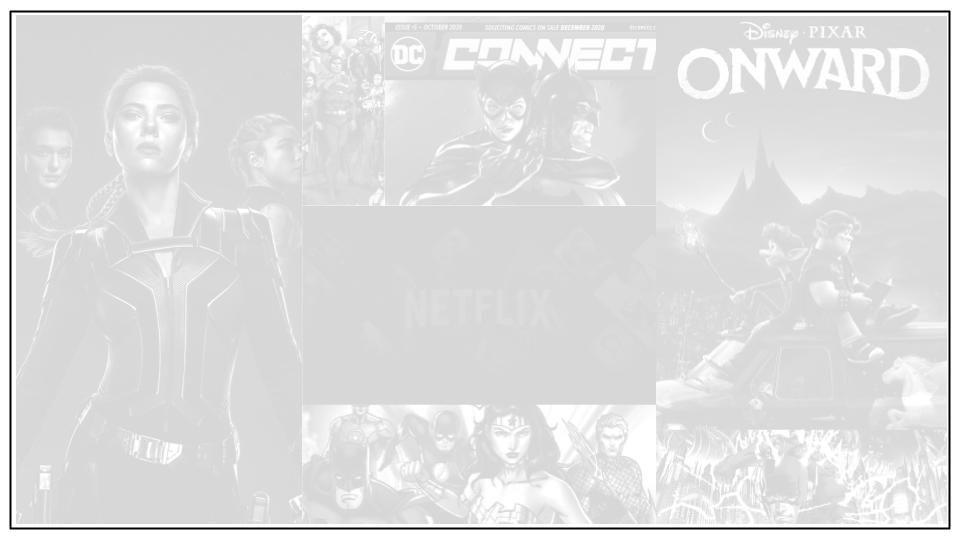
PRINCIPLES:
1. Relevancy
2. Sensory
3. Authenticity
4. Archetype
Visual narratives research
CODES:
1. Symbolic
● Setting
● Mise en scene
● Acting
● Color
2. Technical
● Camerawork
● Editing
● Audio
● Lighting
CONVENTIONS:
1. Form
2. Story
3. Genre
How to make your own
Visual narrative

1. Choosing a theme, character and timeline
a story
2. Creating
3.
Storyboarding
4.
Final illustrations
Visual narrative

How to make your own
My theme, character and timeline
Since we were allowed to select characters and stories which already exist. I chose a well known character of DC comics known as The Flash. I took an existing character but I made my own version of the story.

The Flash is a metahuman who possesses superhuman speed and has the ability to manipulate time to his will. I made a generic story of the character where his wife Iris West Allen gets kidnapped by the villain named Trickster and Flash
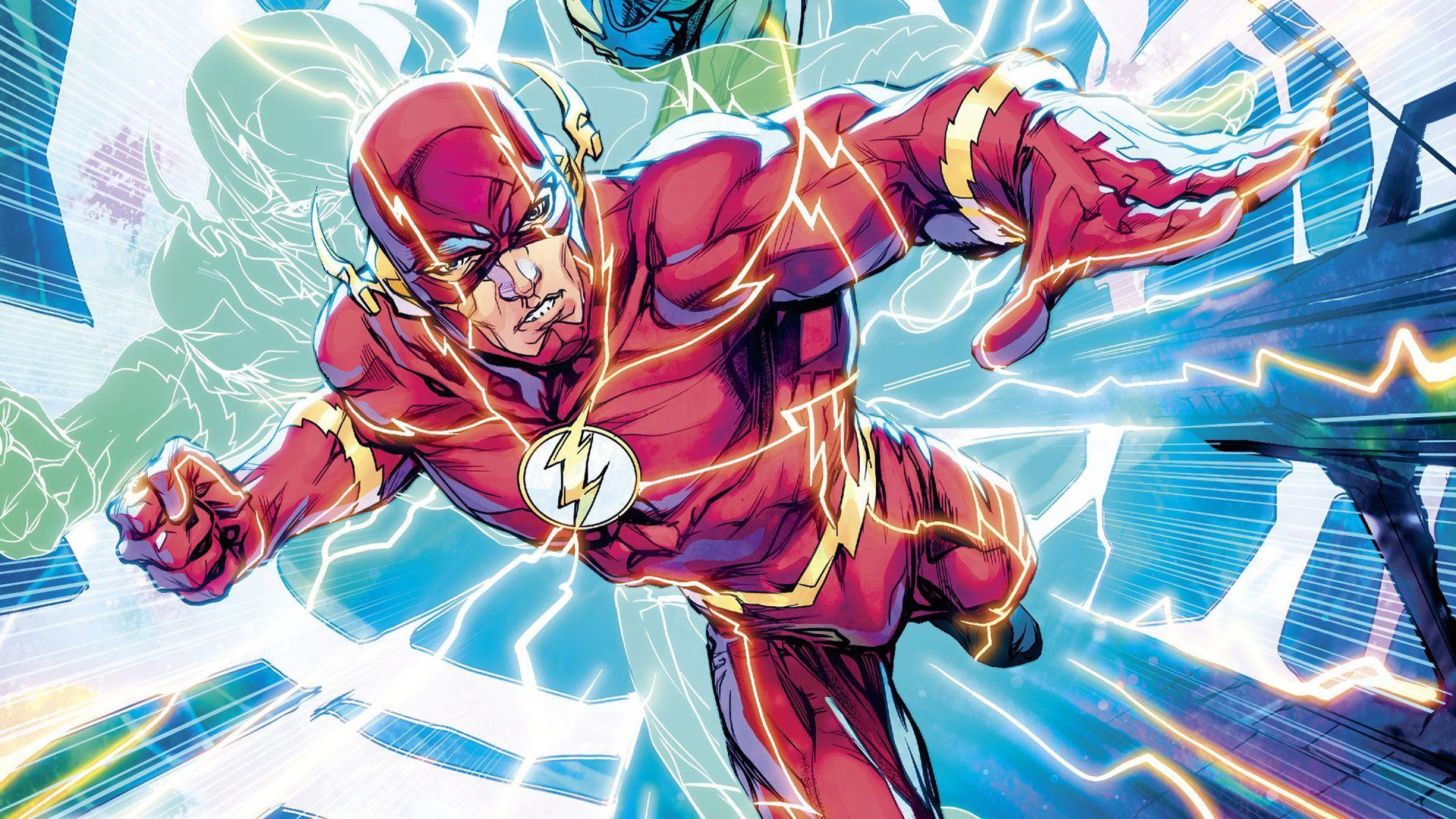
My story
My storyboard
Storyboarding is one of the most crucial part of planning a visual narrative. It helps plan the different camera angles to be used in a visual and also how the story is supposed to unfold.
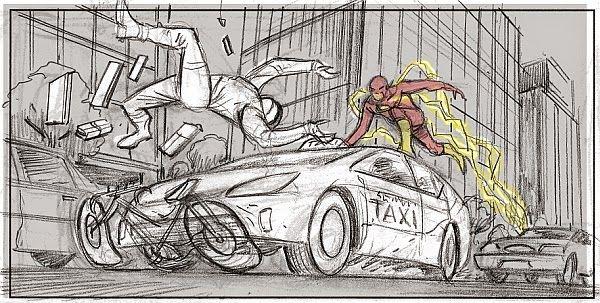
● The Flash is searching for Iris then suddenly he sees a lady calling for help while falling off a building. She looks like Iris.
● The Flash rushes to catch her. He rotates his arms to form a tornado for a smooth landing for Iris.

● He catches her. But wait…IT’S NOT IRIS. IT WAS ONE OF THE DUPLICATE DUMMIES FROM THE TRICKSTER.

After Iris (Flash’s Wife) gets kidnapped by the trickster so this is the fight scene and how the flash wins…

● Flash races to punch the trickster but it was merely a duplicate sheet of him. The trickster comes from behind and tries to beat the Flash with a rod but Flash is fast enough to sense and stop his attack.
● Flash is angrily moving towards the trickster and then something clicks under his foot!!! What is it? A mine? A bomb?
●
IT WAS A POWER DAMPENING CUFF!!! The Flash is unable to use his powers.
● The trickster uses his famous catchphrase - TRICKED YA!!!
● The Flash tries to free himself but is unable to do so. He tries to punch trickster but he evades his attack very easily.

●
● Trickster punches the Flash making him even angrier than ever. His wife is being held hostage by the Trickster, he’s usable to use his powers, what is can he do?!
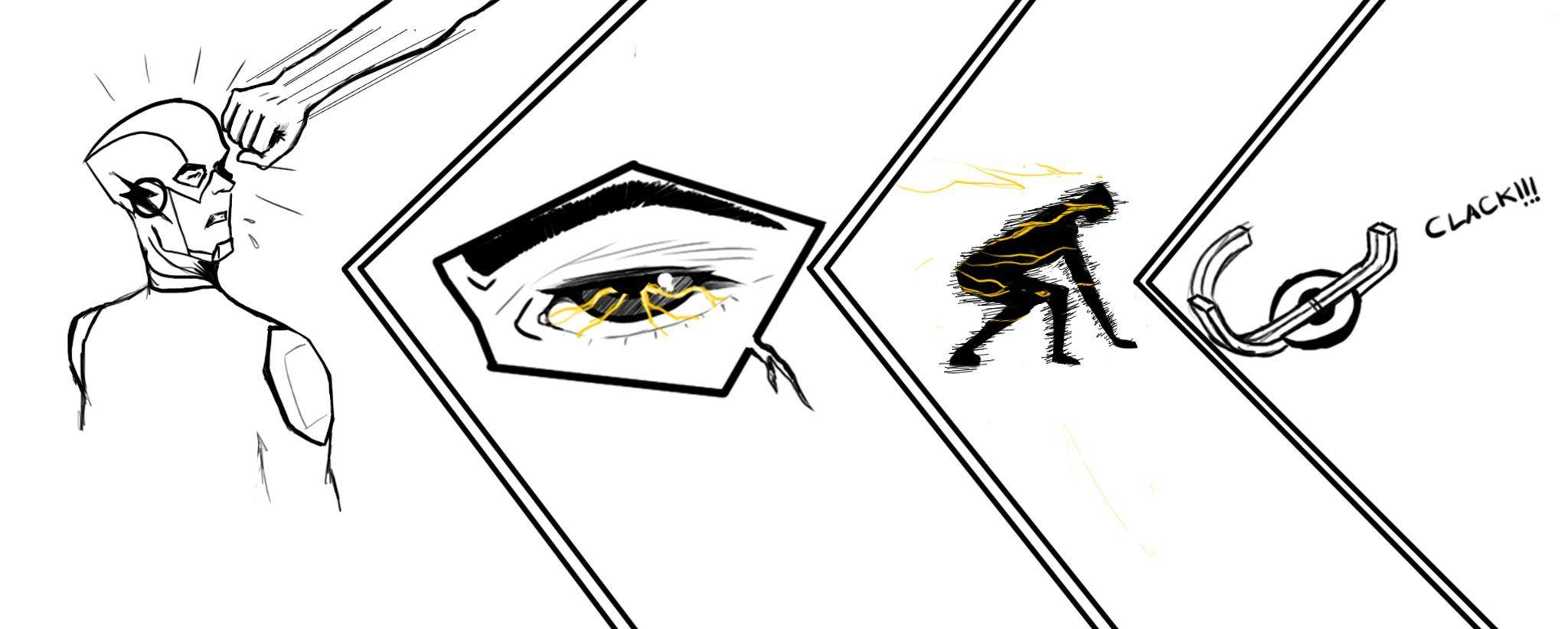
● The Flash, with every cell in his body, tries to vibrate. He’s able to vibrate at an extreme frequency at which his molecules are able to pass through the molecules of the power dampening cuffs. He frees himself.
● The story ends with the Flash handing the police over to the Trickster and Iris and Barry are reunited.
My final illustrations
After doing the storyboard I made a few final illustrations for the comic layer by layer and colored it.
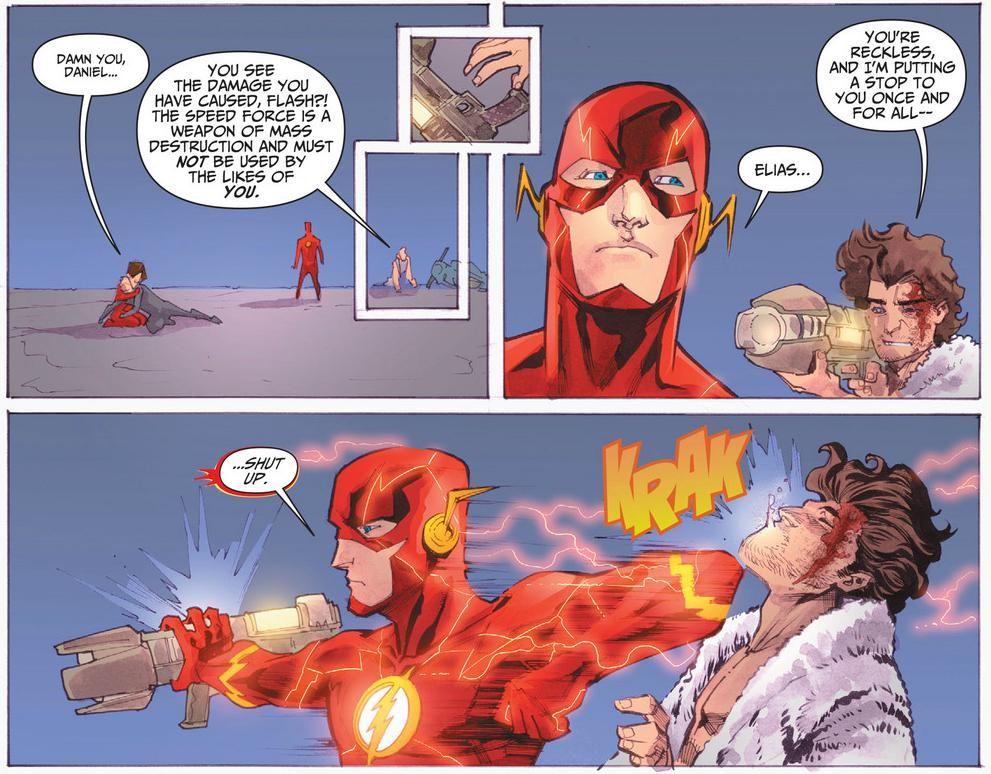






Other Explorations
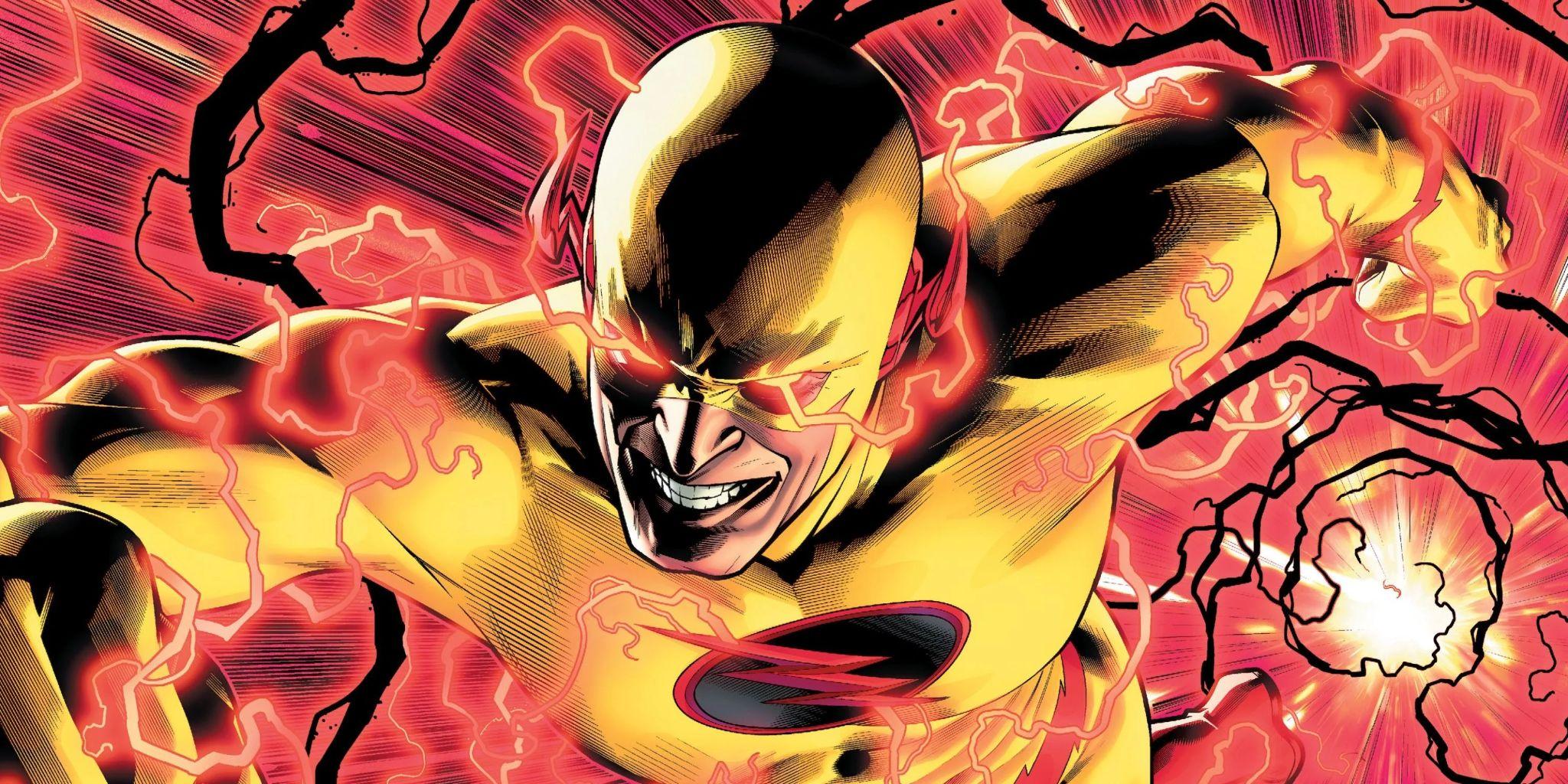
It’s important to show your mistake and stupid decisions. Maybe they were neither a mistake nor a stupidity…
Trying out the character design for the kid.


Trying to think of story origins. I went with the word ‘Dreams’.
Rough Sketches
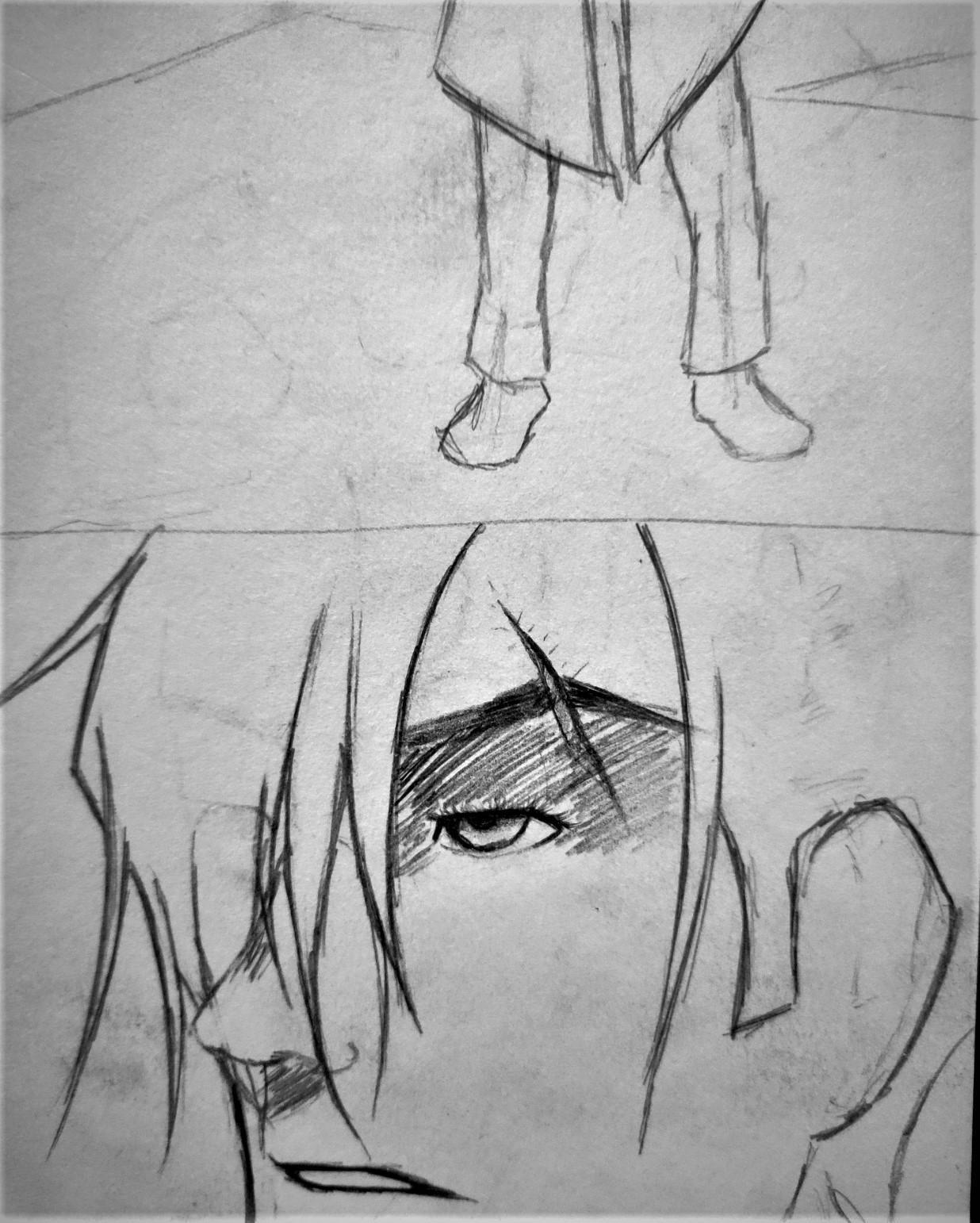
This is how my first story was going to be…
1. The main character is a kid. He is sleeping. He sees a dream. It’s really vivid. He dreams that he is an adult male stuck in the middle of a dessert. What is happening?
2. He opens his eyes in real life but end up waking up in his dream situation. He is a grown up man. He is deserted. No one is around. He doesn’t know what to do. He walks and walks for hours.
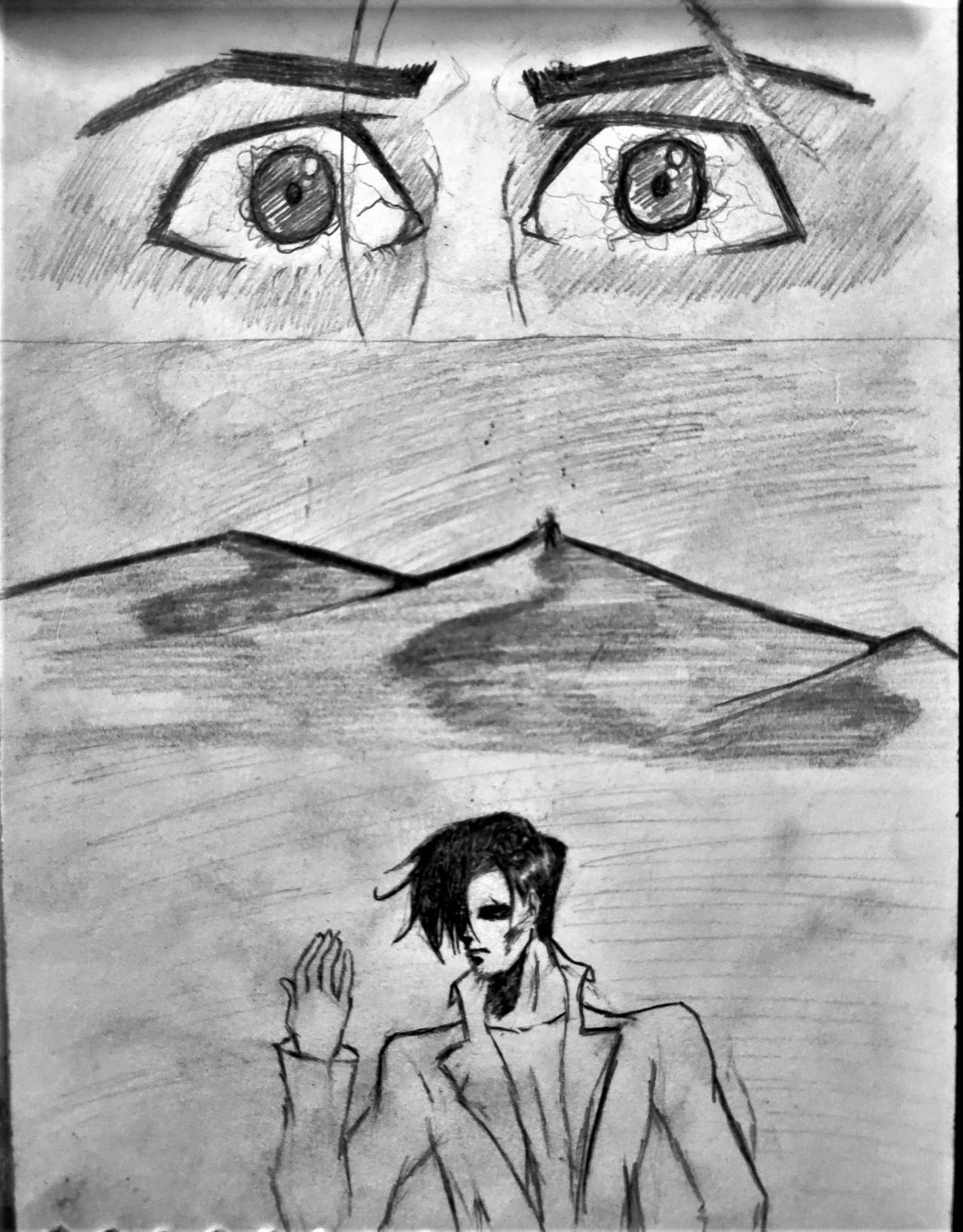
3. The story shall end when he finds a way back to his reality.






















